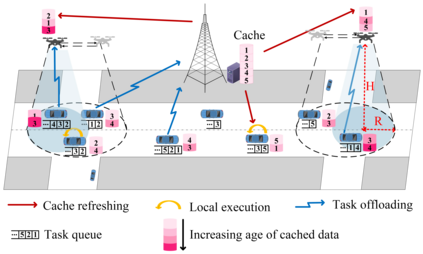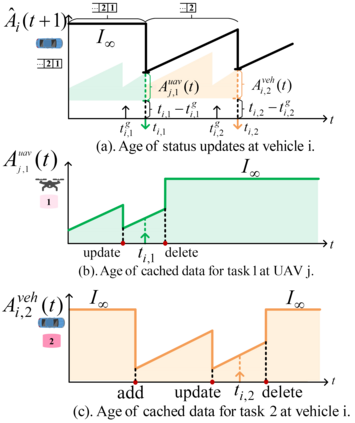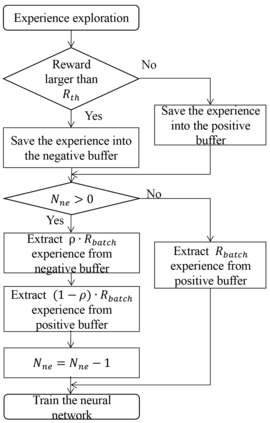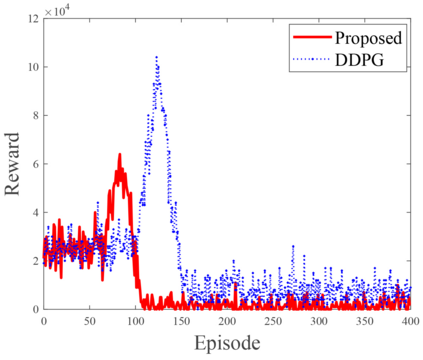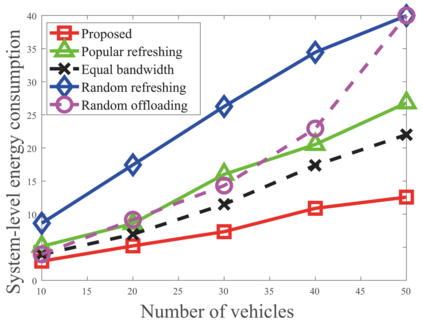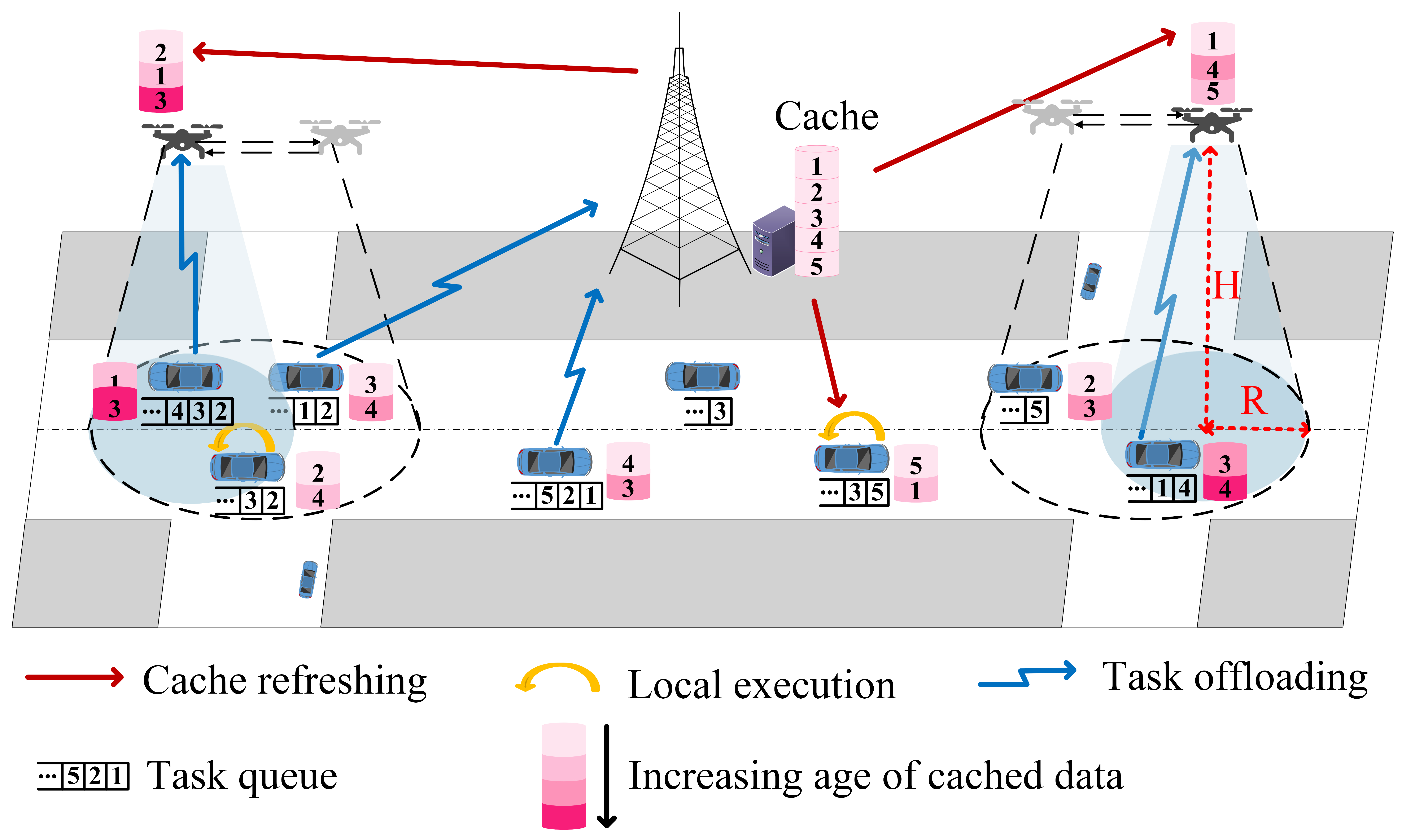Intelligent edge network is maturing to enable smart and efficient transportation systems. In this letter, we consider unmanned aerial vehicle (UAV)-assisted vehicular networks where UAVs provide caching and computing services in complement with base station (BS). One major challenge is that vehicles need to obtain timely situational awareness via orchestration of ubiquitous caching and computing resources. Note that cached data for vehicles' perception tasks contains time-varying context information, thus freshness of cached data should be considered in conjunction with task execution to guarantee timeliness of obtained status updates. To this end, we propose a two-stage performance metric to quantify the impact of cache refreshing and computation offloading decisions on the age of status updates. We formulate an energy minimization problem by jointly considering cache refreshing, computation offloading and aging of status updates. To facilitate online decision making, we propose a deep deterministic policy gradient(DDPG)-based solution procedure and incorporate differentiated experience replay mechanism to accelerate convergence. Simulation results show that the performance of proposed solution is competitive in terms of energy consumption for obtaining fresh status updates.
翻译:智能边缘网络正在成熟,以建立智能和高效的运输系统。在本信中,我们认为无人驾驶飞行器(无人驾驶飞行器)协助的车辆网络正在成熟,无人驾驶飞行器(无人驾驶飞行器)与基地站(BS)一起提供缓存和计算服务。一个重大挑战是,车辆需要通过调制无处不在的缓存和计算资源来及时了解情况。请注意,车辆的感知任务缓存数据包含时间变化的背景信息,因此,应结合任务执行来考虑缓存数据的新鲜性,以确保及时更新获得的状况。为此,我们提出一个两阶段性能衡量标准,以量化缓存的更新和计算对现状更新时代的卸载决定的影响。我们共同考虑缓存、计算卸载和不断更新状态,以尽量减少能源问题。为了便利在线决策,我们提议了一个基于时间变化的深度确定性政策梯度(DDPG)解决方案程序,并纳入不同的经验回放机制,以加速趋同。模拟结果显示,拟议解决方案的绩效在能源消耗方面竞争,以获得新的状态更新。

